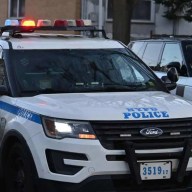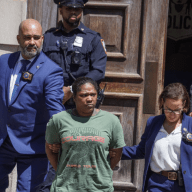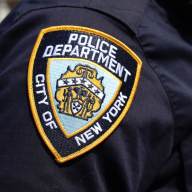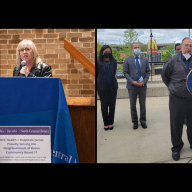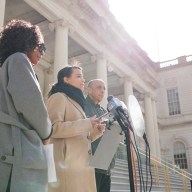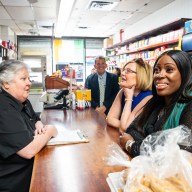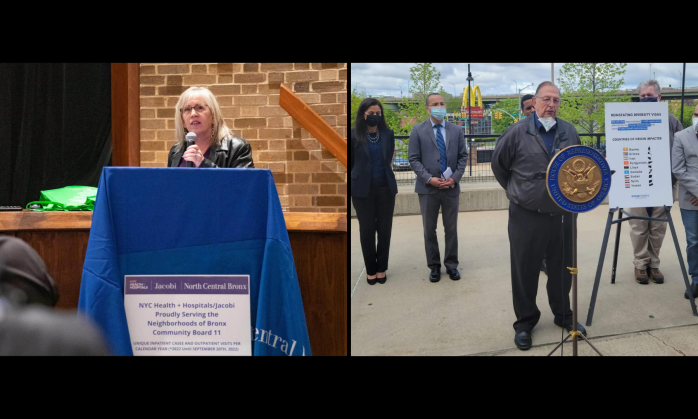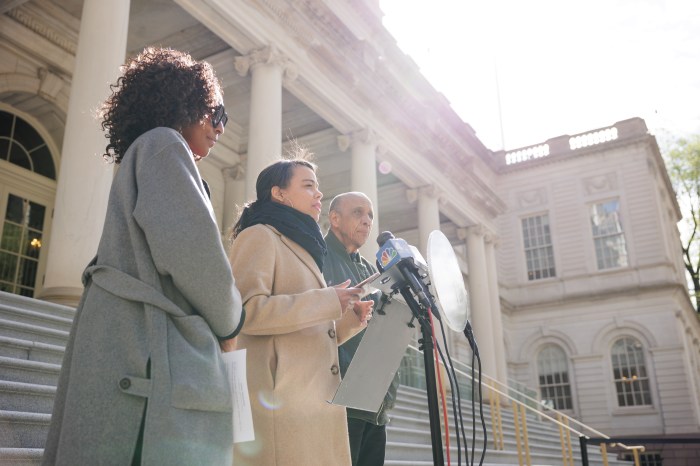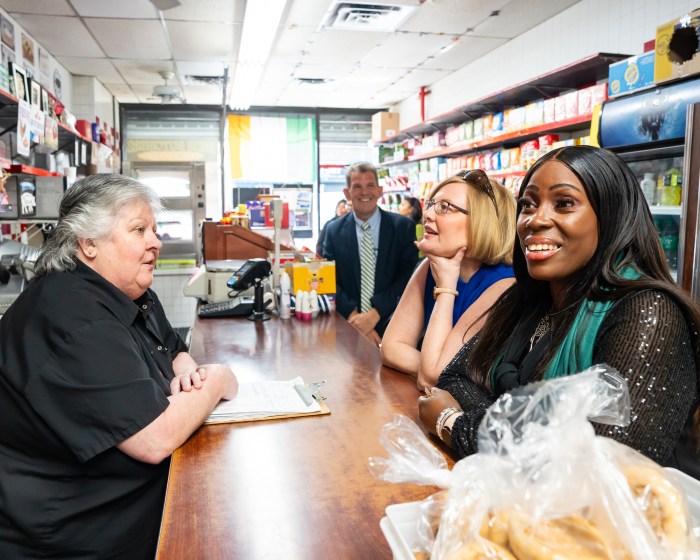“Throughout the surgery they chanted, ‘Thank you’ and ‘Praise the Lord,’” Ford said. “I had goose bumps. Not one time in five days did I see anybody angry or bitter or upset. Haitians are a humble and religious people.”
Haiti-born Dr. Ronald Verrier, also of St. Barnabas Hospital seems to fit the mold. Verrier reached Haiti on January 14 and performed surgery nonstop from 9 a.m. to 8 a.m. at Port-au-Prince’s largest hospital, at times by flashlight. His father, a Port-au-Prince resident, suffered a heart attack and passed away.
“At least I was there to help my mother,” Verrier said.
Ford, 47, was born to a preacher father in Port-au-Prince. One of nine children, he remembers Haiti’s beaches, coconut trees and soccer in the backyard. The family hosted early morning revivals and fasted on Thursdays. When Ford was ten years old, his family moved to Brooklyn.
He attended Princeton University and Albert Einstein College of Medicine. Today, Ford is St. Barnabas’ top anesthesiologist. His brother Jean is a cancer expert at Johns Hopkins Hospital in Baltimore, his brother Henri chief surgeon at Children’s Hospital in Los Angeles.
The three reunited under a University of Miami-sponsored tent hospital in Haiti to witness the power of faith.
“My dad heals souls and we heal people,” Ford explained.
Ford was at his sons’ piano lessons when he heard about the earthquake. Anxious and concerned, he reached Port-au-Prince on January 22. An hour later, when Ford began to work, his anxiety and concern melted away. Ford focused on work.
“My first case was an amputation,” he said. “It felt good to be back. God blessed my brothers and I with the skills to help people. The faith [that my patients displayed] made me stop and think. It made me want to stop whining.”
Ford only frowned when the work ended and he considered Haiti’s future.
“We put a cast on a little boy,” he said. “I told his dad it was okay to go home. He looked at me like I had five heads. His home was gone.”
Verrier, a surgeon born in Port-au-Prince to a surgeon father and an anesthesiologist mother, moved to the United States in 1980. In 2001, he helped St. Barnabas become a Level One Trauma Center.
When he heard about the earthquake, Verrier attempted to reach his parents in Haiti. He couldn’t but later learned that they had escaped a collapsed house unharmed. Verrier wasted no time; he touched down in the Dominican Republic on January 14, rented a car and crossed the border into Haiti. He and his parents slept under the stars rather than risk death by aftershock.
“The country looked okay until we reached Port-au-Prince,” he said. “We saw destroyed buildings and from time to time dead bodies on the street.”
Verrier returned to the Haiti’s State University Hospital, where he had trained, and began to coordinate treatment. He linked Haitian and foreign doctors. Surgery was impossible on January 15. The operating room had been demolished and there was no electricity.
“It was chaotic,” Verrier said. “So many people with crushed arms and legs. No pain meds. No food. No water. It was heart-wrenching to do less than the best for people.”
Help came on January 16 in the form of supplies plus Swiss and American doctors. On January 17, a team of 60 Haitian-American doctors and nurses arrived. The chaos faded.
But Verrier remains troubled.
“What struck me was all the broken limbs and amputations,” he said. “A whole generation of disabled Haitians in need of long-term care and prosthetics, young people without arms and legs.”
When Verrier buried his father, he promised his mother that he’d be back. Ford also plans to return. Both doctors described St. Barnabas patients and Bronx residents in general as lucky.
“At St. Barnabas we treat first and worry about money later,” Ford said. “Many of my Haitian patients had never seen a doctor.”
Reach reporter Daniel Beekman at 718 742-3383 or dbeekman@cnglocal.com







